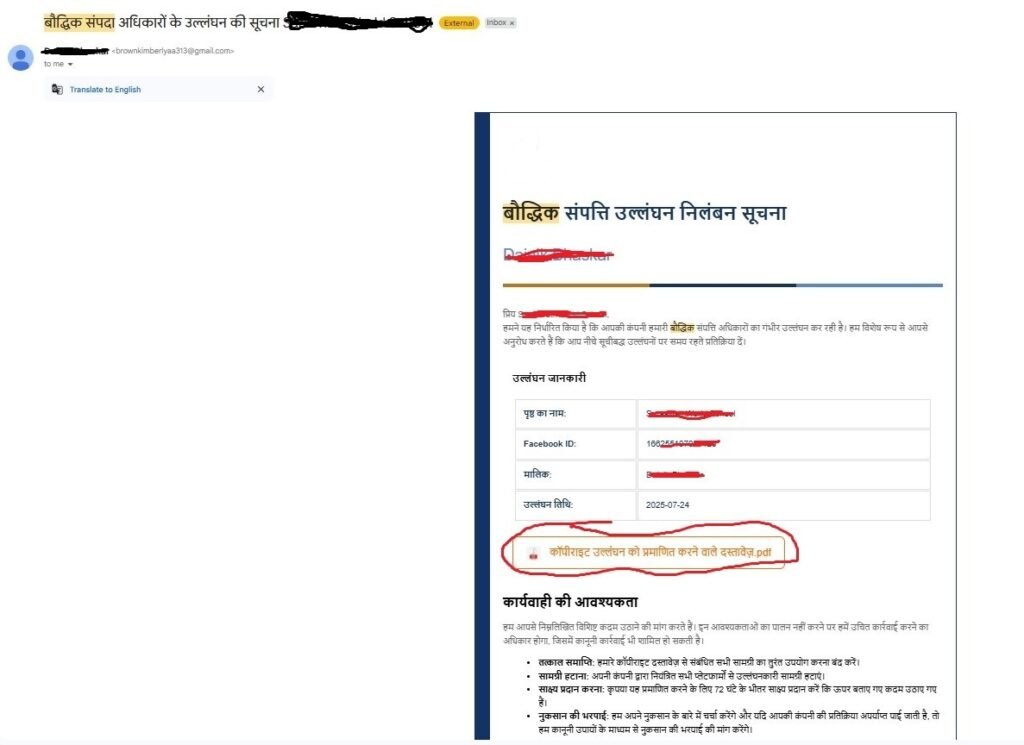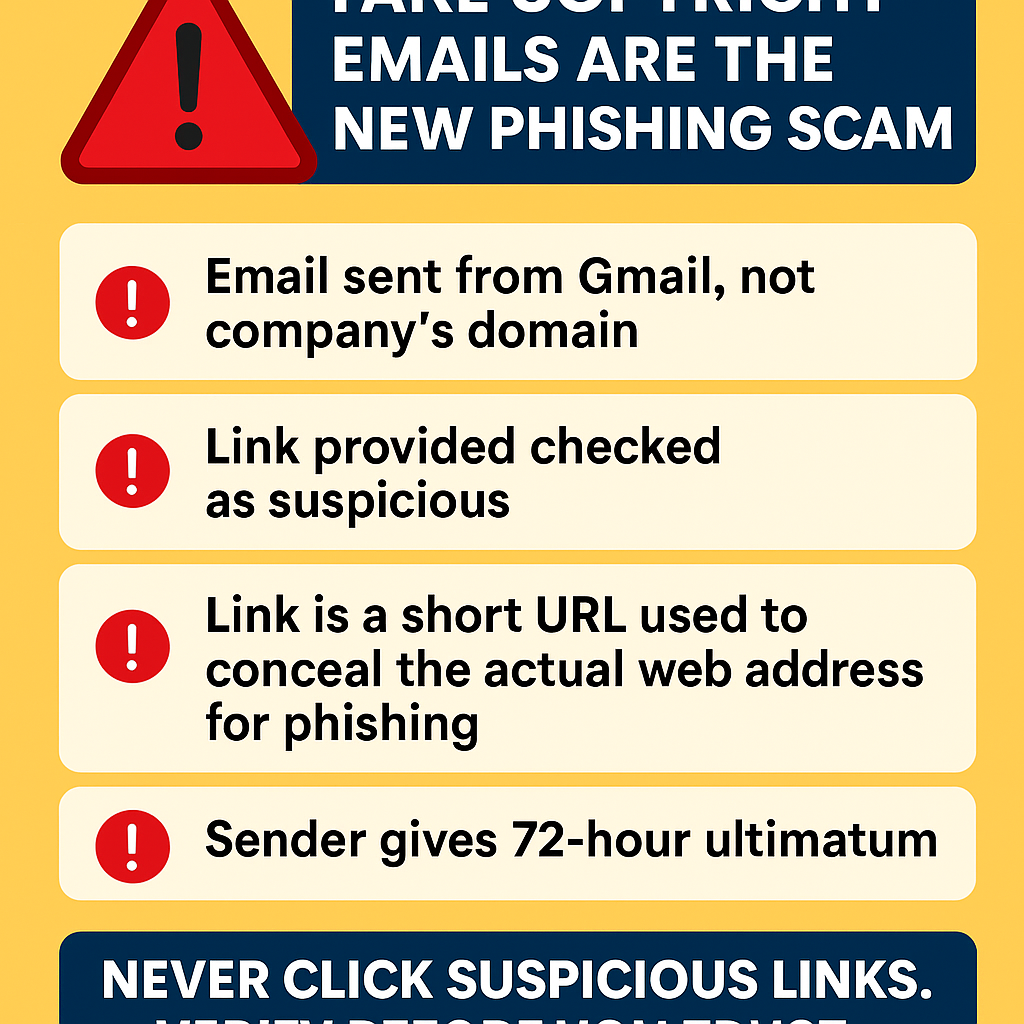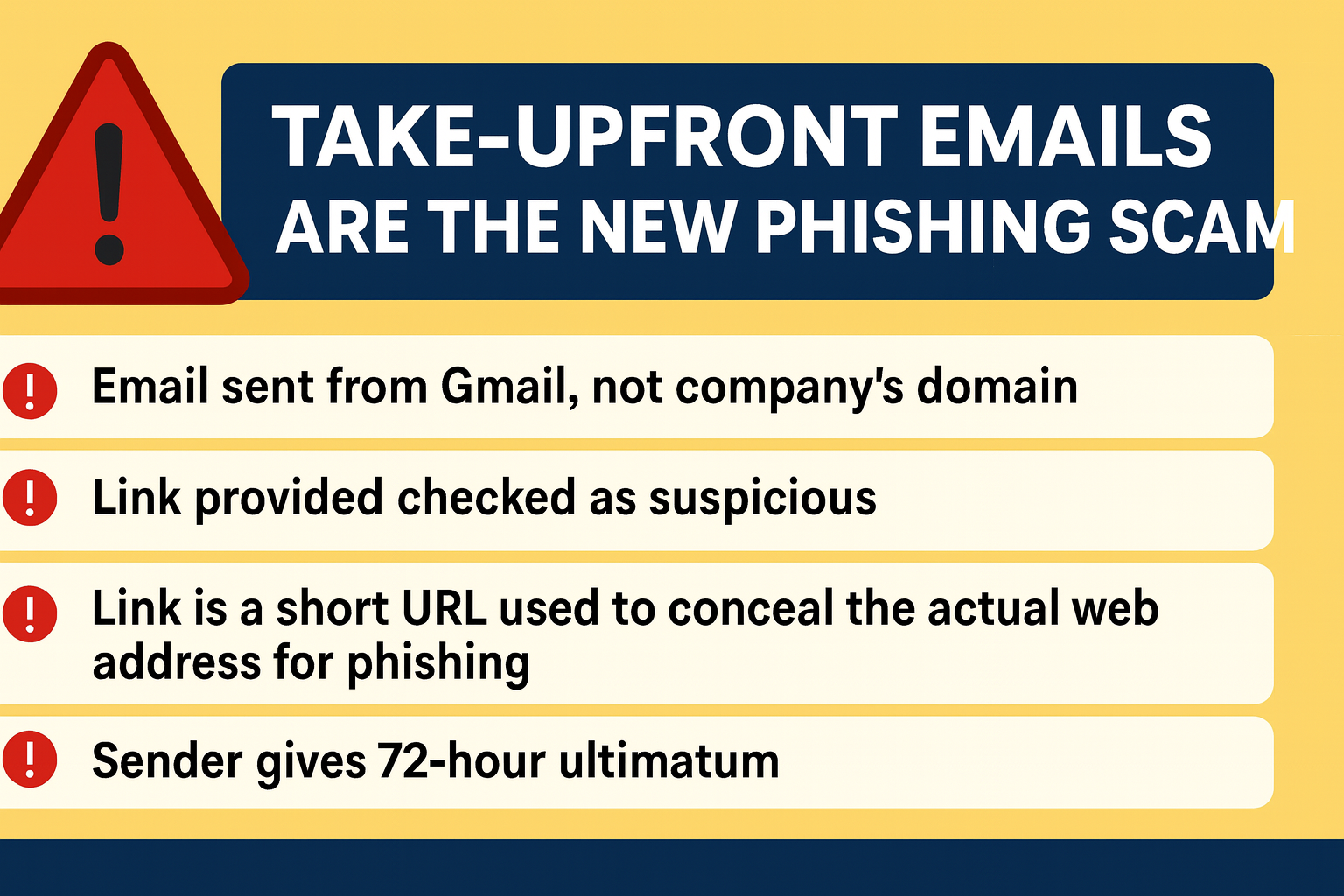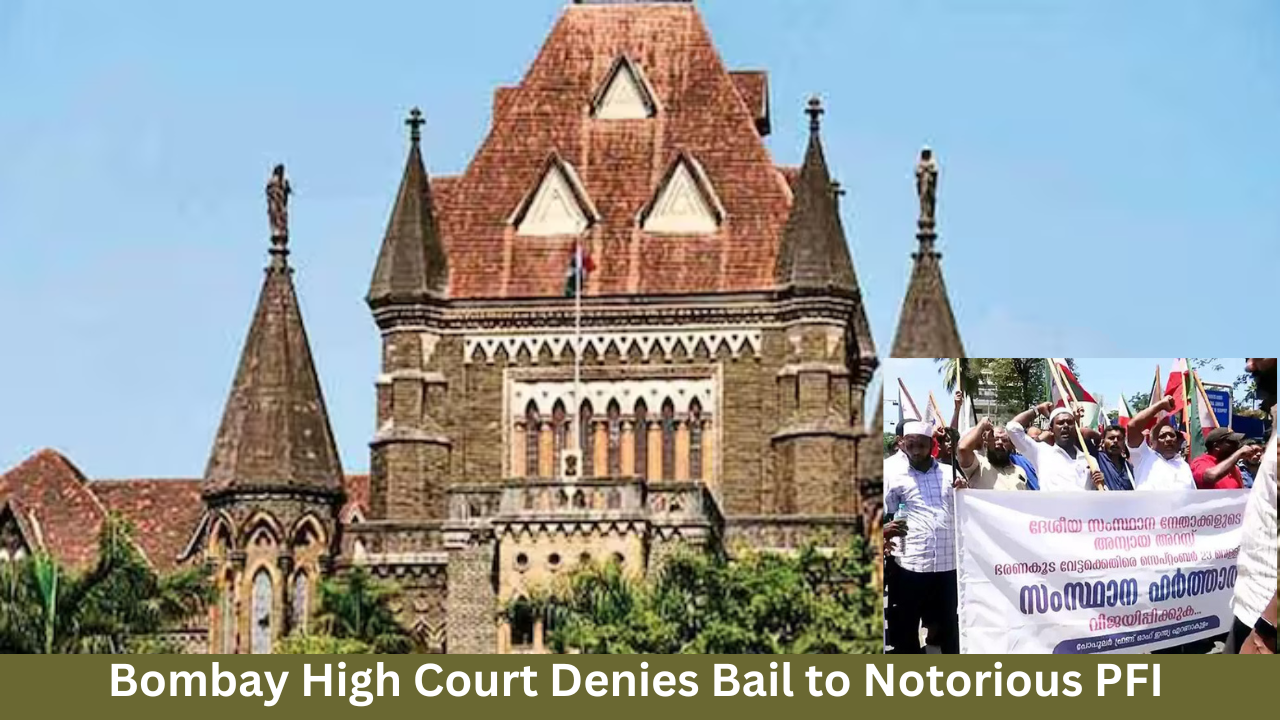Rise of Phishing Scams: Fake Copyright & Trademark Emails Targeting Businesses and Individuals
A new wave of phishing scams is sweeping across inboxes in India and abroad, exploiting the fear of copyright and trademark violations to dupe unsuspecting victims out of money. Cyber experts warn that this scam is more sophisticated than traditional spam, combining social engineering, malware, and impersonation of trusted organisations.

The New Modus Operandi
Unlike generic spam, these phishing scam emails are highly personalised. Scammers begin by profiling their targets through publicly available information — browsing LinkedIn, company websites, or social media profiles. They then craft emails directly addressing individuals or organisations by name, referencing their public work or business.
The phishing scam emails claim to be from reputable media houses, copyright agencies, or legal firms and allege that the recipient has violated intellectual property rights. Victims are given a 72-hour ultimatum to comply — a tactic designed to induce panic and hasty decisions.
Inside the phishing scam message is a shortened URL that appears harmless but conceals a phishing or malware-laden website. Clicking it often leads to malware installation, granting scammers remote access to the victim’s device. Once in control, they demand money under the threat of lawsuits, data leaks, or reputational damage.
Phishing Scam Emails Case Study: Anatomy of a Scam Email
A recent incident revealed key red flags in one such phishing scam attempt:
- Email Origin: The message was sent not from a company domain, but from a generic Gmail account — a clear giveaway.
- Suspicious Link: The embedded link, upon verification, was flagged as phishing content. The use of URL shorteners helped scammers mask the real destination.
- Poor Drafting: The email lacked proper formatting, contained vague threats, and provided no legal details — far from the professional communication a real company would send.
- False Ultimatum: No legitimate company or court issues a 72-hour ultimatum over email. Such deadlines are a psychological trick to pressure victims.
Expert Warnings & Legal Standpoint
Cybersecurity specialists emphasise that no genuine copyright agency or legal entity will ever send vague emails asking recipients to download suspicious links. Official notices are always served through verified domains, government agencies, or registered legal representatives.
Legal experts also point out that threatening ultimatums of this kind are not legally enforceable and constitute clear evidence of fraud.
IIT Bombay Student’s ID Misused in Online Scam Targeting JEE Aspirants
Precautions to Stay Safe

Authorities and cyber experts advise the following precautions:
- Never click on links in unsolicited emails, especially when they involve legal or financial threats.
- Check the sender’s domain. Reputable companies use official email addresses, not free services like Gmail or Yahoo.
- Look for professionalism. Genuine copyright or trademark notices are detailed, formal, and legally structured.
- Avoid urgency traps. Real organisations do not issue 72-hour ultimatums via email.
- Verify independently. If in doubt, directly contact the company or organisation through their official website or customer support.
- Use updated security software to detect and block malicious links and attachments.
- Report phishing attempts to cybercrime portals (such as India’s National Cyber Crime Reporting Portal).
The Bigger Picture
These phishing scam emails reflect a broader trend of cybercriminals exploiting legal jargon and brand trust to extort money. With AI tools, scammers are becoming adept at personalising emails, making them harder to detect. Experts warn that small businesses, content creators, and freelancers are especially vulnerable since they often lack dedicated cybersecurity resources.
As phishing scam campaigns grow more advanced, digital literacy and awareness remain the most powerful defence.
“Scammers thrive on fear and urgency. If you pause, verify, and avoid clicking, you can shut down their entire game,” said a Cyber expert .
Exposed: The Shocking ‘Police Officer’ WhatsApp Call scam
✅ Bottom Line: Always scrutinise suspicious emails, verify sources independently, and remember — no real company will ever ask you to download a link or pay money under vague copyright threats.
Discover more from
Subscribe to get the latest posts sent to your email.











1 COMMENTS